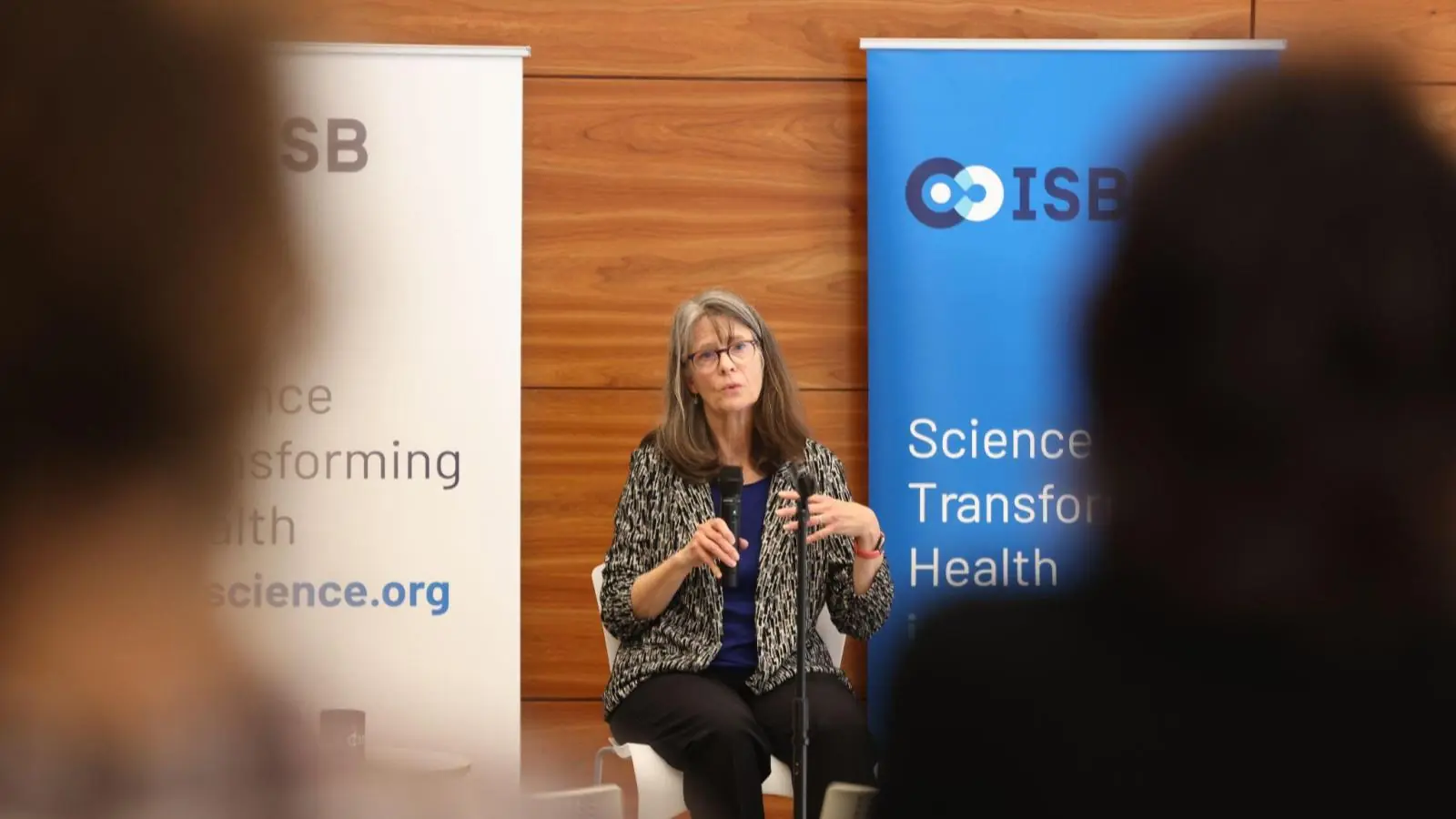Media Coverage
Filter
-
- All Categories
- Brain Health
- Cancers
- Cell Dynamics
- Computational Biology
- COVID-19
- Disease
- Environment
- Experimental
- Healthspan
- Healthy Aging
- Immune System
- Infectious Disease
- Microbiome
- Nobel Prize
- Pregnancy Health
- Proteomics
- Scientific Wellness
Sort
-
- Default
- A-Z
- Z-A
- Newest
- Oldest
Nobel Prize winner Mary Brunkow on immune system research
In an interview with NPR’s Here & Now, Dr. Mary Brunkow reflects on the scurfy mouse, finding FOXP3, and the clinical promise of T regs – explained for a general audience in a concise, ~6-minute segment with host Scott Tong.
What's the difference between a scurfy mouse and a scruffy mouse? A Nobel Prize
In this ~20-minute interview, KUOW’s Soundside host Gabriel Spitzer talks with Nobel laureate Mary Brunkow about the “scurfy” mouse, discovering FOXP3, and how her work on immune tolerance is reshaping treatments for autoimmune disease and cancer
How T regs fueled a new class of immunology companies
Chemical & Engineering News spotlights the Nobel-driven science behind regulatory T cells (Tregs) and how the discovery of FOXP3 helped spark a wave of biotech startups tackling autoimmune diseases and cancer.
What Are Tregs? Explaining 2025’s Nobel Prize Winning Research
A friendly, plain-English explainer of the immune system’s “peacekeepers” – regulatory T cells – tracing how FOXP3 flips them on, how they prevent self-attack, and why that science landed Mary Brunkow and colleagues on Nobel morning.
Seattle scientist Mary Brunkow wins Nobel Prize for groundbreaking immune system research
Before dawn knocks and “spam” calls turn real, Mary Brunkow steps into the spotlight – reflecting on the discovery of regulatory T cells that reshaped care for autoimmune disease, cancer, and transplants, from her Darwin Molecular days to ISB today.
These Immune Cells Won Nobel Fame – Can They Solve Autoimmune Disease?
This story follows the Nobel spotlight to ask the bigger question: can the immune system’s “peacekeeper” cells – regulatory T cells – be engineered to actually tame autoimmune disease? A measured look at where the trials stand now (think rheumatoid arthritis and transplant tolerance) and what hurdles remain.
Trio Wins Nobel Prize in Medicine for Discoveries on Immune System
A clear, big-picture read that follows the discovery of the immune system’s “brakes” from early genetic clues to a Nobel-morning payoff – spotlighting Mary Brunkow’s role and how regulatory T cells reshaped care for autoimmune disease and beyond.
Photos show Mary E. Brunkow waking up to the news she is a Nobel winner in medicine
A photographer from The Associated Press was on Mary Brunkow’s front door in the early hours of October 6, 2025, to capture her reaction to being named a recipient of the Nobel Prize in Physiology or Medicine. This story publishes a series of photos that depict Brunkow’s surprise and emotion.

Nobel Laureate Dr. Mary Brunkow speaks at a press conference held at ISB on October 7, 2025. (Photo by Alex Garland for ISB)
ISB’s 2025 Nobel Prize Coverage
ISB’s Dr. Mary Brunkow received the 2025 Nobel Prize in Physiology or Medicine for transformative discoveries in immune tolerance.
Visit our Nobel Prize hub page for stories, photos, reactions celebrating this historic achievement, and more.